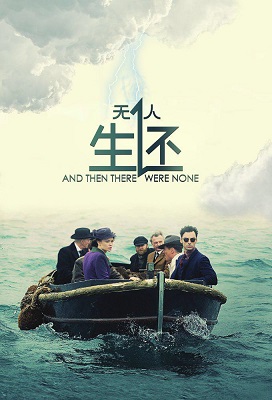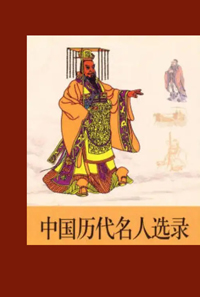Nately’s death almost killed the chaplain. Chaplain Shipman was seated in his tent, laboring1 over his paperworkin his reading spectacles, when his phone rang and news of the mid-air collision was given to him from the field.
His insides turned at once to dry clay. His hand was trembling as he put the phone down. His other hand begantrembling. The disaster was too immense to contemplate3. Twelve men killed—how ghastly, how very, veryawful! His feeling of terror grew. He prayed instinctively4 that Yossarian, Nately, Hungry Joe and his otherfriends would not be listed among the victims, then berated5 himself repentantly, for to pray for their safety was topray for the death of other young men he did not even know. It was too late to pray; yet that was all he knew howto do. His heart was pounding with a noise that seemed to be coming from somewhere outside, and he knew hewould never sit in a dentist’s chair again, never glance at a surgical6 tool, never witness an automobile7 accident orhear a voice shout at night, without experiencing the same violent thumping8 in his chest and dreading9 that he wasgoing to die. He would never watch another fist fight without fearing he was going to faint and crack his skullopen on the pavement or suffer a fatal heart attack or cerebral10 hemorrhage. He wondered if he would ever see hiswife again or his three small children. He wondered if he ever should see his wife again, now that Captain Blackhad planted in his mind such strong doubts about the fidelity11 and character of all women. There were so manyother men, he felt, who could prove more satisfying to her sexually. When he thought of death now, he alwaysthought of his wife, and when he thought of his wife he always thought of losing her.
In another minute the chaplain felt strong enough to rise and walk with glum12 reluctance13 to the tent next door forSergeant Whitcomb. They drove in Sergeant14 Whitcomb’s jeep. The chaplain made fists of his hands to keepthem from shaking as they lay in his lap. He ground his teeth together and tried not to hear as SergeantWhitcomb chirruped exultantly15 over the tragic16 event. Twelve men killed meant twelve more form letters ofcondolence that could be mailed in one bunch to the next of kin2 over Colonel Cathcart’s signature, givingSergeant Whitcomb hope of getting an article on Colonel Cathcart into The Saturday Evening Post in time forEaster.
At the field a heavy silence prevailed, overpowering motion like a ruthless, insensate spell holding in thrall17 the only beings who might break it. The chaplain was in awe18. He had never beheld19 such a great, appalling20 stillnessbefore. Almost two hundred tired, gaunt, downcast men stood holding their parachute packs in a somber21 andunstirring crowd outside the briefing room, their faces staring blankly in different angles of stunned22 dejection.
They seemed unwilling23 to go, unable to move. The chaplain was acutely conscious of the faint noise hisfootsteps made as he approached. His eyes searched hurriedly, frantically24, through the immobile maze25 of limpfigures. He spied Yossarian finally with a feeling of immense joy, and then his mouth gaped26 open slowly inunbearable horror as he noted27 Yossarian’s vivid, beaten, grimy look of deep, drugged despair. He understood atonce, recoiling28 in pain from the realization29 and shaking his head with a protesting and imploring30 grimace31, thatNately was dead. The knowledge struck him with a numbing32 shock. A sob33 broke from him. The blood drainedfrom his legs, and he thought he was going to drop. Nately was dead. All hope that he was mistaken was washedaway by the sound of Nately’s name emerging with recurring34 clarity now from the almost inaudible babble35 ofmurmuring voices that he was suddenly aware of for the first time. Nately was dead: the boy had been killed. Awhimpering sound rose in the chaplain’s throat, and his jaw36 began to quiver. His eyes filled with tears, and hewas crying. He started toward Yossarian on tiptoe to mourn beside him and share his wordless grief. At thatmoment a hand grabbed him roughly around the arm and a brusque voice demanded,“Chaplain Shipman?”
He turned with surprise to face a stout37, pugnacious38 colonel with a large head and mustache and a smooth, floridskin. He had never seen the man before. “Yes. What is it?” The fingers grasping the chaplain’s arm were hurtinghim, and he tried in vain to squirm loose.
“Come along.”
The chaplain pulled back in frightened confusion. “Where? Why? Who are you, anyway?”
“You’d better come along with us, Father,” a lean, hawk-faced major on the chaplain’s other side intoned withreverential sorrow. “We’re from the government. We want to ask you some questions.”
“What kind of questions? What’s the matter?”
“Aren’t you Chaplain Shipman?” demanded the obese39 colonel.
“He’s the one,” Sergeant Whitcomb answered.
“Go on along with them,” Captain Black called out to the chaplain with a hostile and contemptuous sneer40. “Goon into the car if you know what’s good for you.”
Hands were drawing the chaplain away irresistibly41. He wanted to shout for help to Yossarian, who seemed toofar away to hear. Some of the men nearby were beginning to look at him with awakening42 curiosity. The chaplainbent his face away with burning shame and allowed himself to be led into the rear of a staff car and seatedbetween the fat colonel with the large, pink face and the skinny, unctuous43, despondent44 major. He automaticallyheld a wrist out to each, wondering for a moment if they wanted to handcuff him. Another officer was already in the front seat. A tall M.P. with a whistle and a white helmet got in behind the wheel. The chaplain did not dareraise his eyes until the closed car had lurched from the area and the speeding wheels were whining45 on the bumpyblacktop road.
“Where are you taking me?” he asked in a voice soft with timidity and guilt46, his gaze still averted47. The notioncame to him that they were holding him to blame for the mid-air crash and the death of Nately. “What have Idone?”
“Why don’t you keep your trap shut and let us ask the questions?” said the colonel.
“Don’t talk to him that way,” said the major. “It isn’t necessary to be so disrespectful.”
“Then tell him to keep his trap shut and let us ask the questions.”
“Father, please keep your trap shut and let us ask the questions,” urged the major sympathetically. “It will bebetter for you.”
“It isn’t necessary to call me Father,” said the chaplain. “I’m not a Catholic.”
“Neither am I, Father,” said the major. “It’s just that I’m a very devout48 person, and I like to call all men of GodFather.”
“He doesn’t even believe there are atheists in foxholes50,” the colonel mocked, and nudged the chaplain in the ribsfamiliarly. “Go on, Chaplain, tell him. Are there atheists in foxholes?”
“I don’t know, sir,” the chaplain replied. “I’ve never been in a foxhole49.”
The officer in front swung his head around swiftly with a quarrelsome expression. “You’ve never been in heaveneither, have you? But you know there’s a heaven, don’t you?”
“Or do you?” said the colonel.
“That’s a very serious crime you’ve committed, Father,” said the major.
“What crime?”
“We don’t know yet,” said the colonel. “But we’re going to find out. And we sure know it’s very serious.”
The car swung off the road at Group Headquarters with a squeal52 of tires, slackening speed only slightly, andcontinued around past the parking lot to the back of the building. The three officers and the chaplain got out. Insingle file, they ushered53 him down a wobbly flight of wooden stairs leading to the basement and led him into adamp, gloomy room with a low cement ceiling and unfinished stone walls. There were cobwebs in all thecorners. A huge centipede blew across the floor to the shelter of a water pipe. They sat the chaplain in a hard, straight-backed chair that stood behind a small, bare table.
“Please make yourself comfortable, Chaplain,” invited the colonel cordially, switching on a blinding spotlightand shooting it squarely into the chaplain’s face. He placed a set of brass55 knuckles56 and box of wooden matcheson the table. “We want you to relax.”
The chaplain’s eyes bulged57 out incredulously. His teeth chattered58 and his limbs felt utterly59 without strength. Hewas powerless. They might do whatever they wished to him, he realized; these brutal60 men might beat him todeath right there in the basement, and no one would intervene to save him, no one, perhaps, but the devout andsympathetic major with the sharp face, who set a water tap dripping loudly into a sink and returned to the table tolay a length of heavy rubber hose down beside the brass knuckles.
“Everything’s going to be all right, Chaplain,” the major said encouragingly. “You’ve got nothing to be afraid ofif you’re not guilty. What are you so afraid of? You’re not guilty, are you?”
“Sure he’s guilty,” said the colonel. “Guilty as hell.”
“Guilty of what?” implored61 the chaplain, feeling more and more bewildered and not knowing which of the mento appeal to for mercy. The third officer wore no insignia and lurked62 in silence off to the side. “What did I do?”
“That’s just what we’re going to find out,” answered the colonel, and he shoved a pad and pencil across the tableto the chaplain. “Write your name for us, will you? In your own handwriting.”
“My own handwriting?”
“That’s right. Anywhere on the page.” When the chaplain had finished, the colonel took the pad back and held itup alongside a sheet of paper he removed from a folder63. “See?” he said to the major, who had come to his sideand was peering solemnly over his shoulder.
“They’re not the same, are they?” the major admitted.
“I told you he did it.”
“Did what?” asked the chaplain.
“Chaplain, this comes as a great shock to me,” the major accused in a tone of heavy lamentation64.
“What does?”
“I can’t tell you how disappointed I am in you.”
“For what?” persisted the chaplain more fiantically. “What have I done?”
“For this,” replied the major, and, with an air of disillusioned65 disgust, tossed down on the table the pad on whichthe chaplain had signed his name. “This isn’t your handwriting.”
The chaplain blinked rapidly with amazement66. “But of course it’s my handwriting.”
“No it isn’t, Chaplain. You’re lying again.”
“But I just wrote it!” the chaplain cried in exasperation67. “You saw me write it.”
“That’s just it,” the major answered bitterly. “I saw you write it. You can’t deny that you did write it. A personwho’ll lie about his own handwriting will lie about anything.”
“But who lied about my own handwriting?” demanded the chaplain, forgetting his fear in the wave of anger andindignation that welled up inside him suddenly. “Are you crazy or something? What are you both talking about?”
“We asked you to write your name in your own handwriting. And you didn’t do it.”
“But of course I did. In whose handwriting did I write it if not my own?”
“In somebody else’s.”
“Whose?”
“That’s just what we’re going to find out,” threatened the colonel.
“Talk, Chaplain.”
The chaplain looked from one to the other of the two men with rising doubt and hysteria. “That handwriting ismine,” he maintained passionately68. “Where else is my handwriting, if that isn’t it?”
“Right here,” answered the colonel. And looking very superior, he tossed down on the table a photostatic copy ofa piece of V mail in which everything but the salutation “Dear Mary” had been blocked out and on which thecensoring officer had written, “I long for you tragically70. R. O. Shipman, Chaplain, U.S. Army.” The colonelsmiled scornfully as he watched the chaplain’s face turn crimson71. “Well, Chaplain? Do you know who wrotethat?”
The chaplain took a long moment to reply; he had recognized Yossarian’s handwriting. “No.”
“You can read, though, can’t you?” the colonel persevered72 sarcastically73. “The author signed his name.”
“That’s my name there.”
“Then you wrote it. Q.E.D.”
“But I didn’t write it. That isn’t my handwriting, either.”
“Then you signed your name in somebody else’s handwriting again,” the colonel retorted with a shrug74. “That’sall that means.”
“Oh, this is ridiculous!” the chaplain shouted, suddenly losing all patience. He jumped to his feet in a blazingfury, both fists clenched75. “I’m not going to stand for this any longer! Do you hear? Twelve men were just killed,and I have no time for these silly questions. You’ve no right to keep me here, and I’m just not going to stand forit.”
Without saying a word, the colonel pushed the chaplain’s chest hard and knocked him back down into the chair,and the chaplain was suddenly weak and very much afraid again. The major picked up the length of rubber hoseand began tapping it menacingly against his open palm. The colonel lifted the box of matches, took one out andheld it poised76 against the striking surface, watching with glowering77 eyes for the chaplain’s next sign of defiance78.
The chaplain was pale and almost too petrified79 to move. The bright glare of the spotlight54 made him turn awayfinally; the dripping water was louder and almost unbearably80 irritating. He wished they would tell him what theywanted so that he would know what to confess. He waited tensely as the third officer, at a signal from thecolonel, ambled81 over from the wall and seated himself on the table just a few inches away from the chaplain. Hisface was expressionless, his eyes penetrating82 and cold.
“Turn off the light,” he said over his shoulder in a low, calm voice. “It’s very annoying.”
The chaplain gave him a small smile of gratitude83. “Thank you, sir. And the drip too, please.”
“Leave the drip,” said the officer. “That doesn’t bother me.” He tugged84 up the legs of his trousers a bit, as thoughto preserve their natty85 crease86. “Chaplain,” he asked casually87, “of what religious persuasion88 are you?”
“I’m an Anabaptist, sir.”
“That’s a pretty suspicious religion, isn’t it?”
“Suspicious?” inquired the chaplain in a kind of innocent daze89. “Why, sir?”
“Well, I don’t know a thing about it. You’ll have to admit that, won’t you? Doesn’t that make it prettysuspicious?”
“I don’t know, sir,” the chaplain answered diplomatically, with an uneasy stammer90. He found the man’s lack ofinsignia disconcerting and was not even sure he had to say “sir”. Who was he? And what authority had he tointerrogate him?
“Chaplain, I once studied Latin. I think it’s only fair to warn you of that before I ask my next question. Doesn’tthe word Anabaptist simply mean that you’re not a Baptist?”
“Oh, no, sir. There’s much more.”
“Are you a Baptist?”
“No, sir.”
“Then you are not a Baptist, aren’t you?”
“Sir?”
“I don’t see why you’re bickering91 with me on that point. You’ve already admitted it. Now, Chaplain, to sayyou’re not a Baptist doesn’t really tell us anything about what you are, does it? You could be anything oranyone.” He leaned forward slightly and his manner took on a shrewd and significant air. “You could even be,”
he added, “Washington Irving, couldn’t you?”
“Washington Irving?” the chaplain repeated with surprise.
“Come on, Washington,” the corpulent colonel broke in irascibly. “Why don’t you make a clean breast of it? Weknow you stole that plum tomato.”
After a moment’s shock, the chaplain giggled92 with nervous relief. “Oh, is that it!” he exclaimed. “Now I’mbeginning to understand. I didn’t steal that plum tomato, sir. Colonel Cathcart gave it to me. You can even askhim if you don’t believe me.”
A door opened at the other end of the room and Colonel Cathcart stepped into the basement as though from acloset.
“Hello, Colonel. Colonel, he claims you gave him that plum tomato. Did you?”
“Why should I give him a plum tomato?” answered Colonel Cathcart.
“Thank you, Colonel. That will be all.”
“It’s a pleasure, Colonel,” Colonel Cathcart replied, and he stepped back out of the basement, closing the doorafter him.
“Well, Chaplain? What have you got to say now?”
“He did give it to me!” the chaplain hissed93 in a whisper that was both fierce and fearful. “He did give it to me!”
“You’re not calling a superior officer a liar51 are you, Chaplain?”
“Why should a superior officer give you a plum tomato, Chaplain?”
“Is that why you tried to give it to Sergeant Whitcomb, Chaplain? Because it was a hot tomato?”
“No, no, no,” the chaplain protested, wondering miserably94 why they were not able to understand. “I offered it toSergeant Whitcomb because I didn’t want it.”
“Why’d you steal it from Colonel Cathcart if you didn’t want it?”
“I didn’t steal it from Colonel Cathcard”
“Then why are you so guilty, if you didn’t steal it?”
“I’m not guilty!”
“Then why would we be questioning you if you weren’t guilty?”
“Oh, I don’t know,” the chaplain groaned95, kneading his fingers in his lap and shaking his bowed and anguishedhead. “I don’t know.”
“He thinks we have time to waste,” snorted the major.
“Chaplain,” resumed the officer without insignia at a more leisurely96 pace, lifting a typewritten sheet of yellowpaper from the open folder, “I have a signed statement here from Colonel Cathcart asserting you stole that plumtomato from him.” He lay the sheet face down on one side of the folder and picked up a second page from theother side. “And I have a notarized affidavit97 from Sergeant Whitcomb in which he states that he knew the tomatowas hot just from the way you tried to unload it on him.”
“I swear to God I didn’t steal it, sir,” the chaplain pleaded with distress98, almost in tears. “I give you my sacredword it was not a hot tomato.”
“Chaplain, do you believe in God?”
“Yes, sir. Of course I do.”
“That’s odd, Chaplain,” said the officer, taking from the folder another typewritten yellow page, “because I havehere in my hands now another statement from Colonel Cathcart in which he swears that you refused to cooperatewith him in conducting prayer meetings in the briefing room before each mission.”
After looking blank a moment, the chaplain nodded quickly with recollection. “Oh, that’s not quite true, sir,” heexplained eagerly. “Colonel Cathcart gave up the idea himself once he realized enlisted99 men pray to the sameGod as officers.”
“He did what?” exclaimed the officer in disbelief.
“What nonsense!” declared the red-faced colonel, and swung away from the chaplain with dignity andannoyance.
“Does he expect us to believe that?” cried the major incredulously.
The officer without insignia chuckled100 acidly. “Chaplain, aren’t you stretching things a bit far now?” he inquiredwith a smile that was indulgent and unfriendly.
“But, sir, it’s the truth, sir! I swear it’s the truth.”
“I don’t see how that matters one way or the other,” the officer answered nonchalantly, and reached sidewaysagain toward the open folder filled with papers. “Chaplain, did you say you did believe in God in answer to myquestion? I don’t remember.”
“Yes, sir. I did say so, sir. I do believe in God.”
“Then that really is very odd, Chaplain, because I have here another affidavit from Colonel Cathcart that statesyou once told him atheism101 was not against the law. Do you recall ever making a statement like that to anyone?”
The chaplain nodded without any hesitation102, feeling himself on very solid ground now. “Yes, sir, I did make astatement like that. I made it because it’s true. Atheism is not against the law.”
“But that’s still no reason to say so, Chaplain, is it?” the officer chided tartly103, frowning, and picked up still onemore typewritten, notarized page from the folder. “And here I have another sworn statement from SergeantWhitcomb that says you opposed his plan of sending letters of condolence over Colonel Cathcart’s signature tothe next of kin of men killed or wounded in combat. Is that true?”
“Yes, sir, I did oppose it,” answered the chaplain. “And I’m proud that I did. Those letters are insincere anddishonest. Their only purpose is to bring glory to Colonel Cathcart.”
“But what difference does that make?” replied the officer. “They still bring solace104 and comfort to the familiesthat receive them, don’t they? Chaplain, I simply can’t understand your thinking process.”
The chaplain was stumped105 and at a complete loss for a reply. He hung his head, feeling tongue-tied and naive106.
The ruddy stout colonel stepped forward vigorously with a sudden idea. “Why don’t we knock his goddambrains out?” he suggested with robust107 enthusiasm to the others.
“Yes, we could knock his goddam brains out, couldn’t we?” the hawk-faced major agreed. “He’s only anAnabaptist.”
“No, we’ve got to find him guilty first,” the officer without insignia cautioned with a languid restraining wave.
He slid lightly to the floor and moved around to the other side of the table, facing the chaplain with both handspressed flat on the surface. His expression was dark and very stern, square and forbidding. “Chaplain,” heannounced with magisterial108 rigidity109, “we charge you formally with being Washington Irving and takingcapricious and unlicensed liberties in censoring69 the letters of officers and enlisted men. Are you guilty orinnocent?”
“Innocent, sir.” The chaplain licked dry lips with a dry tongue and leaned forward in suspense110 on the edge of hischair.
“Guilty,” said the colonel.
“Guilty,” said the major.
“Guilty it is, then,” remarked the officer without insignia, and wrote a word on a page in the folder. “Chaplain,”
he continued, looking up, “we accuse you also of the commission of crimes and infractions we don’t even knowabout yet. Guilty or innocent?”
“I don’t know, sir. How can I say if you don’t tell me what they are?”
“How can we tell you if we don’t know?”
“Guilty,” decided111 the colonel.
“Sure he’s guilty,” agreed the major. “If they’re his crimes and infractions, he must have committed them.”
“Guilty it is, then,” chanted the officer without insignia, and moved off to the side of the room. “He’s all yours,Colonel.”
“Thank you,” commended the colonel. “You did a very good job.” He turned to the chaplain. “Okay, Chaplain,the jig112’s up. Take a walk.”
The chaplain did not understand. “What do you wish me to do?”
“Go on, beat it, I told you!” the colonel roared, jerking a thumb over his shoulder angrily. “Get the hell out ofhere.”
The chaplain was shocked by his bellicose113 words and tone and, to his own amazement and mystification, deeplychagrined that they were turning him loose. “Aren’t you even going to punish me?” he inquired with queruloussurprise.
“You’re damned right we’re going to punish you. But we’re certainly not going to let you hang around while we decide how and when to do it. So get going. Hit the road.”
The chaplain rose tentatively and took a few steps away. “I’m free to go?”
“For the time being. But don’t try to leave the island. We’ve got your number, Chaplain. Just remember thatwe’ve got you under surveillance twenty-four hours a day.”
It was not conceivable that they would allow him to leave. The chaplain walked toward the exit gingerly,expecting at any instant to be ordered back by a peremptory114 voice or halted in his tracks by a heavy blow on theshoulder or the head. They did nothing to stop him. He found his way through the stale, dark, dank corridors tothe flight of stairs. He was staggering and panting when he climbed out into the fresh air. As soon as he hadescaped, a feeling of overwhelming moral outrage115 filled him. He was furious, more furious at the atrocities116 of theday than he had ever felt before in his whole life. He swept through the spacious117, echoing lobby of the buildingin a temper of scalding and vindictive118 resentment119. He was not going to stand for it any more, he told himself, hewas simply not going to stand for it. When he reached the entrance, he spied, with a feeling of good fortune,Colonel Korn trotting120 up the wide steps alone. Bracing121 himself with a deep breath, the chaplain movedcourageously forward to intercept122 him.
“Colonel, I’m not going to stand for it any more,” he declared with vehement123 determination, and watched indismay as Colonel Korn went trotting by up the steps without even noticing him. “Colonel Korn!”
The tubby, loose figure of his superior officer stopped, turned and came trotting back down slowly. “What is it,Chaplain?”
“Colonel Korn, I want to talk to you about the crash this morning. It was a terrible thing to happen, terrible!”
Colonel Korn was silent a moment, regarding the chaplain with a glint of cynical124 amusement. “Yes, Chaplain, itcertainly was terrible,” he said finally. “I don’t know how we’re going to write this one up without makingourselves look bad.”
“That isn’t what I meant,” the chaplain scolded firmly without any fear at all. “Some of those twelve men hadalready finished their seventy missions.”
Colonel Korn laughed. “Would it be any less terrible if they had all been new men?” he inquired caustically125.
Once again the chaplain was stumped. Immoral126 logic127 seemed to be confounding him at every turn. He was lesssure of himself than before when he continued, and his voice wavered. “Sir, it just isn’t right to make the men inthis group fly eighty missions when the men in other groups are being sent home with fifty and fifty-five.”
“We’ll take the matter under consideration,” Colonel Korn said with bored disinterest, and started away. “Adios,Padre.”
“What does that mean, sir?” the chaplain persisted in a voice turning shrill128.
Colonel Korn stopped with an unpleasant expression and took a step back down. “It means we’ll think about it,Padre,” he answered with sarcasm129 and contempt. “You wouldn’t want us to do anything without thinking aboutit, would you?”
“No, sir, I suppose not. But you have been thinking about it, haven’t you?”
“Yes, Padre, we have been thinking about it. But to make you happy, we’ll think about it some more, and you’llbe the first person we’ll tell if we reach a new decision. And now, adios.” Colonel Korn whirled away again andhurried up the stairs.
“Colonel Korn!” The chaplain’s cry made Colonel Korn stop once more. His head swung slowly around towardthe chaplain with a look of morose130 impatience131. Words gushed132 from the chaplain in a nervous torrent133. “Sir, Iwould like your permission to take the matter to General Dreedle. I want to bring my protests to WingHeadquarters.”
Colonel Korn’s thick, dark jowls inflated134 unexpectedly with a suppressed guffaw135, and it took him a moment toreply. “That’s all right, Padre,” he answered with mischievous136 merriment, trying hard to keep a straight face.
“You have my permission to speak to General Dreedle.”
“Thank you, sir. I believe it only fair to warn you that I think I have some influence with General Dreedle.”
“It’s good of you to warn me, Padre. And I believe it only fair to warn you that you won’t find General Dreedleat Wing.” Colonel Korn grinned wickedly and then broke into triumphant137 laughter. “General Dreedle is out,Padre. And General Peckem is in. We have a new wing commander.”
The chaplain was stunned. “General Peckem!”
“That’s right, Chaplain. Have you got any influence with him?”
“Why, I don’t even know General Peckem,” the chaplain protested wretchedly.
Colonel Korn laughed again. “That’s too bad, Chaplain, because Colonel Cathcart knows him very well.”
Colonel Korn chuckled steadily138 with gloating relish139 for another second or two and then stopped abruptly140. “Andby the way, Padre,” he warned coldly, poking141 his finger once into the chaplain’s chest. “The jig is up betweenyou and Dr. Stubbs. We know very well he sent you up here to complain today.”
“Dr. Stubbs?” The chaplain shook his head in baffled protest. “I haven’t seen Dr. Stubbs, Colonel. I was broughthere by three strange officers who took me down into the cellar without authority and questioned and insultedme.”
Colonel Korn poked142 the chaplain in the chest once more. “You know damned well Dr. Stubbs has been tellingthe men in his squadron they didn’t have to fly more than seventy missions.” He laughed harshly. “Well, Padre, they do have to fly more than seventy missions, because we’re transferring Dr. Stubbs to the Pacific. So adios,Padre. Adios.”
36、地下室
听到内特利阵亡的消息,牧师差点死过去。塔普曼牧师当时正坐在自己的帐篷里,戴着老花镜认认真真地处理着日常文件。突然,电话铃响了,机场上的人向他通报了半空中的飞机相撞事件。
他顿时感到心如刀割。他的手哆哆嗦嗦地放下电话,另一只手也抖动起来。这真是一场无法想象的灾难。十二个人阵亡——多么令人恐怖,多么令人毛骨悚然!他越想越心惊胆战。他不由自主地祈祷上帝保佑约塞连、内特利、亨格利.乔以及他的其他朋友不在阵亡之列。祈祷完毕,他又懊悔地责备自己,因为祈求他们平安就等于祈求别的他根本不认识的年轻人战死。祈祷也太晚了,可他偏偏只会祈祷。他的心怦怦直跳,那心跳声好像是从外面什么地方传来的。他知道,往后他只要坐上牙科医生的手术椅,只要看到外科手术器械,只要目睹汽车事故,或者只要夜里听见喊声,他的心都会像现在这样怦怦乱跳,并会产生现在这种马上就要死去的可怕感觉。往后他只要看见有人打架斗殴,就要担心自己会被吓昏过去,会在人行道上碰破脑袋,或者会因心脏病发作而毙命,或者突发脑溢血。他不知道自己还能不能见到妻子和三个孩子。他不知道自己应该不应该再去见妻子,因为布莱克上尉对他的劝诱使他在心里对所有女性的贞操和品德产生了强烈的怀疑。他觉得许多别的男人能够给予他妻子更多的性满足。现在,当他考虑死亡问题时,他总是想到他的妻子,而当他想到他的妻子时,他又总是担心会失去她。
过了一两分钟,牧师觉得自己有力气站起来了,于是便起身心情沉重地、慢慢吞吞地走到隔壁帐篷去找惠特科姆中士。他俩坐上惠特科姆中士的吉普车。为了不让放在膝盖上的双手颤抖,牧师使劲把它们握成拳头。他咬紧牙关,竭力不去听惠特科姆中士兴致勃勃、喋喋不休地对这次灾难性事件大发议论。十二个人阵亡意味着又要准备十二封由卡思卡特上校签名的吊唁通函。这些信件邮寄给阵亡者亲属时可以捆成一捆。这件事使惠特科姆中士产生了一线希望,也许复活节之前可以在《星期六晚邮报》上发表一篇有关卡思卡特上校的文章。
大地笼罩在深深的寂静之中,似乎那些唯一能打破寂静的人全都被一种不可抗拒的、残忍无情的魔力降服住了。牧师油然生出一股敬畏之感。他还从来没有见到过如此阴森可怕的寂静场面。大约两百名精疲力竭、形容枯槁、无精打采的军人手里拎着降落伞袋,沮丧地、一动不动地围在简令下达室外面。他们面无表情,一个个呆若木鸡,目光死死地盯着不同的方向。他们似乎不愿意离去,也不能够移动了。牧师朝他们走过去时,清清楚楚地听到了自己轻微的脚步声。他的眼睛急切而慌乱地在无声无息呆呆站立着的人群中搜寻着。他终于看见了约塞连,心中不禁一阵狂喜。紧接着,他就注意到约塞连满是灰尘的脸上明显地流露着疲惫、迷惘和深深的绝望,他不禁感到惊恐万分,慢慢地张开了嘴。他立刻就明白了,可又痛苦地不敢承认事实:内特利已经死了。他一脸苦相,轻轻地摇着头,像是在抗议,又像是在哀求。这个消息好似一记重量的拳头,打得他手脚发麻。他不由得抽泣起来。他感到双腿瘫软,好像马上就要倒下去。内特利已经死了。他满心希望是自己弄错了,可是这一线希望也破灭了,因为他突然第一次意识到,周围许多人正用几乎听不见的嗓音低低地但清晰地反复念着内特利的名字。内特利已经死了:这个小伙子战死了。牧师从喉咙里发出一阵呜咽声,他的下巴开始颤抖,他的眼中充满泪水,他放声哭了起来。
他踮起脚尖朝约塞连走过去,想站到他身边去哀悼内特利,分担他无言的悲伤。就在这时,一只手粗暴地抓住了他的胳膊,有人粗声粗气地问道:
“是塔普曼牧师吗?”
他吃惊地转过身去,看见面前站着一个又矮又胖、气势汹汹的上校。这个人脑袋很大,面色红润,留着两撇小胡子。他以前从来没有见过此人,“是我,有什么事?”牧师的胳膊被这个人的手指捏得很痛,他使劲地扭动着胳膊,可就是挣脱不出来。
“跟我们走。”
牧师惊慌地向后退缩着。“去哪儿?为什么、你们到底是什么人?”
“你最好跟我们走一趟,神父,”站在牧师另一边的一个身材瘦削、长着一张鹰脸的少校用恭敬而悲伤的语调拖着腔说道,“我们是政府派来的。我们要问你几个问题。”
“什么样的问题?出了什么事?”
“你是不是塔普曼牧师?”胖上校质问道。
“就是他,”惠特科姆中士回答道。
“跟他们走吧,”布莱克上尉仇视而轻蔑地冷笑一声,冲着牧师大叫起来。“你要是想不吃苦头,就上车吧。”
几只手不容分说就把牧师拖走了。他想向约塞连呼救,可约塞连离得太远,似乎不会听见。附近的一些军人如梦初醒,开始好奇地打量着他。牧师感到脸上火辣辣的,羞愧地转过脸低下头去。他乖乖地被人领进一辆指挥车里,坐到了后座上那个脸盘又大又红的胖上校和那个虚情假意、萎靡不振的瘦少校之间。刚坐下时,他以为他们要给他戴手铐,便自动地向他们一人伸出一只手腕。前排座位上已经坐着一个军官。一个脖上挂着哨子、头上戴白色钢盔的高个宪兵坐到了方向盘的后面。车门关上了,汽车东倒西歪地开出机场,在崎岖不平的柏油马路上飞驰着。直到这时,牧师才敢抬起眼睛来。
“你们要把我带到哪里去?”他心虚胆怯地轻声发问,眼睛依然盯着别处。他突然想到,他们是要把飞机空中相撞事件和内特利的阵亡归罪于他,“我做了什么事?”
“你就不会闭上嘴,让我们向你提问题吗?”上校问。
“别这样对他说话,”少校说,“没有必要那么粗鲁。”
“那么叫他闭上嘴,让我们来提问题。”
“神父,请你闭上嘴,让我们来提问题,”少校同情地劝道,“这样对你更好些。”
“没有必要叫我神父,”牧师说,”我不是天主教徒。”
“我也不是,神父,”少校说,“可我恰巧是个非常虔诚的人,我喜欢把所有神职人员都叫做神父。”
“他甚至不相信散兵坑里有无神论者,”上校嘲弄地说。他随随便便地用胳膊肘戳了戳牧师的肋骨。“说下去,牧师。告诉他,在散兵坑里有无神论者吗?”
“我不知道,长官,”牧师回答道,“我从来没有到过散兵坑。”
坐在前排的那个军官猛地转过头来,露出一副找茬吵架的嘴脸。“你不是也从来没有到过天堂吗?可你知道有个天堂,不对吗?”
“对吗?”上校说。
“这是你犯下的一项严重罪行,神父,”少校说。
“什么罪行?”
“我们还不知道,”上校说,“但我们会调查出来的。而且我们确信,你的罪行是非常严重的。”
在大队司令部门前,汽车拐下了马路。轮胎发出吱吱扭扭的声响,车速稍微减慢了一点。汽车绕过停车场,开到司令部大楼后面停了下来。三个军官把牧师带下了车。他们排成单行,领着牧师沿一道颤悠悠的木制楼梯往下一直走到地下室,把他带到一间潮湿阴暗的房间里。房间的水泥天花板非常低矮,石头墙裸露着,各个墙角里全都布满了蜘蛛网。一只蜈蚣嗖的一下窜过地板,钻到一根水管下面去了。他们叫牧师坐到一张硬邦邦的靠背椅上,椅子前面是一张小桌子,上面什么也没有摆。
“你不要客气,牧师。”上校一边亲切地招呼着牧师,一边打开一盏耀眼的聚光灯,把光线直射到牧师的脸上。他又把一套指节铜套和一盒木制火柴放到桌子上。“我们要给你放松放松。”
牧师不相信地瞪起眼睛。他的牙齿格格打战,四肢瘫软无力。
他感到无能为力。他知道,他们可以想怎么处治他就怎么处治他。
这几个残忍的家伙可以就在地下室里活活打死他,没有人会插手救他,没有任何人。也许,那位虔诚、富有同情心的瘦长脸少校是例外,可这位少校正在把一个水龙头打开;让水响亮地滴到水池里。
接着,他走回到桌前,把一根长长的、沉甸甸的橡皮管放到指节铜套旁。
“现在一切就绪了,牧师,”少校鼓励说,“只要你没有罪,你就一点用不着害怕。你这么害怕是为什么呢?你没有罪,对吗?”
“他肯定有罪,”上校说,“罪大着呢。”
“我犯的是什么罪呀?”牧师哀求道,他越来越感到困惑不解,弄不清该向这几个人中的哪一个求情。那第三个军官没有佩戴肩章,这会儿默不作声地溜到了一旁。“我干了什么啦?”
“这正是我们打算弄清楚的,”上校回答说。他把一本拍纸薄和一枝铅笔从桌子的另一边推到牧师跟前。“给我们写下你的名字,好吗?用你自己的笔迹。”
“用我自己的笔迹?”
“对。随便写在纸上的什么地方。”牧师写完后,上校把拍纸簿拿了回去,从一个文件夹里取出一页纸,把拍纸簿与这页纸并排放好。“瞧见了吗?”他对走到他身旁的少校说。少校正从他的身后严肃地凝视着这两样东西。
“它们不一样,是吗?”少校承认道。
“我告诉过你是他干的。”
“我干什么啦?”牧师问。
“牧师,这件事太使我感到震惊了,”少校用极为悲哀的语调指责道。
“什么呀?”
“我没法告诉你我对你多么的失望。”
“因为什么呀?”牧师更加慌乱地追问道,“我干了什么事情?”
“就因为这个,”少校一边回答,一边带着失望、厌恶的神情把牧师方才在上面签过名的拍纸簿扔到桌子上。“这不是你的笔迹。”
牧师惊奇得直眨眼睛。“这当然是我的笔迹。”
“不,这不是,牧师,你又在说谎了。”
“但这是我刚刚写的呀!”牧师恼怒地叫道,“你们看着我写的。”
“就是这个问题,”少校愤怒地回答道,“我看着你写的。你不能否认这确实是你写的。一个人在自己的笔迹这件事上都说谎,那他在什么事上都敢说谎。”
“但是,谁在我自己的笔迹这件事上说谎了?”牧师质问道。他心里猛地升腾起一股怒火,一时间竟忘了害怕。“你们是疯了还是怎么啦?你们两个都在讲些什么呀?”
“我们叫你用你自己的笔迹写下你的名字,可你并没有这么做。”
“我当然这样做了。如果不是用我自己的笔迹,那么我是用谁的笔迹?”
“用别的什么人的笔迹。”
“谁的?”
“这正是我们打算弄清楚的,”上校威胁说。
“说吧,牧师。”
牧师望望这个人,又看看那个人。他越来越疑惧重重,越来越歇斯底里。“那笔迹是我的,”他情绪激昂地坚持道,“如果那不是我的笔迹,那我的笔迹在哪里?”
“就在这里,”上校回答道。他神情傲慢地把一份缩印邮递邮件的影印件扔在桌上。那上面除了“亲爱的玛莉”这个称呼外,所有的字迹都被涂抹掉了。军邮检查官在信上写着:“我苦苦地思念着你。
美国随军牧师A.T.塔普曼。”上校看到牧师变得面红耳赤,便嘲弄地笑了起来。“怎么样,牧师?你知道这是谁写的吗?”
牧师已经认出了约塞连的笔迹。过了好长时间,他才回答道:
“不知道。”
“可你是认字的,对吧?”上校不依不饶地继续挖苦他。“写信的人签上了自己的姓名。”
“那是我的姓名。”
“那么是你写的喽。这就是所要证明的。”
“但我没有写。这也不是我的笔迹。”
“这么说,你又一次用别人的笔迹签上了你自己的名字,”上校耸耸肩反驳道,“就是这个意思。”
“天哪,这简直荒谬透顶!”牧师再也忍耐不下去了,大声叫喊起来,他怒气冲冲地跳了起来,两只拳头握得紧紧的。“我再也不能容忍下去了!你们听见了吗?十二个人刚刚阵亡,我没有时间来回答这些愚蠢的问题。你们没有权利把我扣留在这地方。我可是再也不能容忍下去了。”
上校一声不吭地朝着牧师的胸部使劲一推,把牧师推倒在椅子上。牧师突然感到浑身软弱无力,又一次心慌意乱起来。少校捡起那根长长的橡皮管,恐吓地在自己摊开的手掌上轻轻抽打着。上校拿起那盒火柴,从里面抽出一根,把它对着火柴盒划火的那面,准备划火。他双眼怒视着牧师,看他还敢做出什么反抗的表示。牧师面容苍白,几乎僵在椅子上不能动弹。聚光灯的强烈光线终于逼得他扭过脸去,水龙头的滴水声越来越响,弄得他心烦意乱,不堪忍受。他真希望他们告诉他,他们究竟需要什么,这样他就知道他应该坦白交待些什么。上校对第三个军官做了个手势,那人便缓步从墙边走到桌子跟前,在离牧师仅仅几英寸的地方坐了下来。牧师紧张不安地等待着。那人的脸上毫无表情,目光阴森逼人。
“把灯关掉吧,”他回过头去平静地低声说,“这灯光太刺眼了。”
牧师对他感激地微微一笑,“谢谢你,长官。还有那个滴水的龙头,请关上它吧。”
“别管那滴水声,”那军官说,“我并不讨厌它。”他往上扯了扯裤腿,好像怕弄皱了那两条整齐的裤缝似的。“牧师,”他随随便便地问,“你是属于哪个教派的?”
“我属于再浸礼教派,长官。”
“这是个相当可疑的教派,不是吗?”
“可疑?”牧师疑惑不解地问,“为什么,长官?”
“噢,我对这个教派一点都不了解。你不得不承认这一点,对吧?难道这还不使它显得可疑吗?”
“我不知道,长官,”牧师像个外交官似的心神不定、结结巴巴地回答道。这个人没佩戴肩章,这一点使他觉得很为难,他甚至拿不准自己应该不应该称他为“长官”。他是谁?他有什么权力审问他呢?
“牧师,我曾经学过拉丁文。在向你提出下一个问题之前我要先让你知道这一点,我认为只有这样做才是公正的。‘再浸礼教徒’这个词是否仅仅意味着你不是浸礼教徒?”
“我,不,长官,它的含义更广些。”
“你是浸礼教徒吗?”
“不是,长官。”
“那么你不是个浸礼教徒,不对吗?”
“长官?”
“我真不明白,你为什么要在这一点上跟我争论不休。你已经承认了这一点。听着,牧师,说你不是浸礼教徒并不等于真正告诉了我们你究竟是什么人,对吗?你可以是任何教派的教徒,任何人。”他把身体微微向前倾斜,摆出一副精明、深沉的样子。“你甚至可能是,”他接着说,“华盛顿.欧文,难道你不是吗?”
“华盛顿.欧文?”牧师吃惊地重复着。
“承认吧,华盛顿,”胖上校烦躁地插话道,“你究竟为什么不全部交待出来呢?我们知道是你偷了那个红色梨形番茄。”
牧师一下子给吓蒙了。过了一会,他才松了一口气,神经质地格格笑了起来。“哦,原来是这样!”他叫道,“现在我开始明白了。我并没有偷那个红色梨形番茄,长官,是卡思卡特上校送给我的。你们要是不相信我,可以去问问他。”
房间另一头的一扇门打开了,卡思卡特上校走进了地下室。他好像是从壁橱里钻出来的。
“你好,上校。他声称那个红色梨形番茄是你送给他的,上校,你送了吗?”
“我为什么要送给他一个红色梨形番茄呢?”卡思卡特上校反问道。
“谢谢你,上校,这就够了。”
“愿意效劳,上校,”卡思卡特上校回答道,说完便退出了地下室,并随手在身后关上了门。
“怎么样,牧师,现在你还有什么可说的?”
“就是他送给我的!”牧师色厉内荏地低声抗议道,“就是他送给我的!”
“你是在指责一个上级军官说谎吗,牧师?”
“为什么一个上级军官会送给你一个番茄,牧师?”
“这就是你想把它送给惠特科姆中士的原因,是吗,牧师?就因为这个番茄是偷来的?”
“不,不,不,”牧师抗议道。他痛苦地想,他们为什么不能理解呢?“我把番茄送给惠特科姆中士,是因为我不想要它。”
“如果你不想要它,为什么要从卡思卡特上校那儿把它偷来呢?”
“我不是从卡思卡特上校那儿偷来的!”
“如果你没有偷,那你为什么显出这么一副有罪的模样?”
“我没有罪。”
“如果你没有罪,那我们为什么要审问你?”
“天哪,我不知道。”牧师呻吟了一声。他把放在膝盖上的手指互相捏来捏去,极其痛苦地晃动着低垂的脑袋。“我不知道。”
“他以为我们有工夫跟他磨蹭。”少校气愤地哼了一声。
“牧师,”没佩戴肩章的军官从打开的文件夹里取出一张黄色打印纸,口气更加从容地继续说道,“我这儿有一张卡思卡特上校亲笔签名的证词,证词中声明是你从他那儿偷走了那个番茄。”他把这张纸正面朝下放到文件夹的一边,又从另一边拿起另一张纸。
“我这儿还有一份经过公证的惠特科姆中士的宣誓证词。他在证词中说,他当时看到你急着把番茄塞给他的那副样子,就知道那番茄来路不正。”
“我向上帝发誓,我没有偷那个番茄,长官,”牧师苦恼地恳求道,眼泪都快要掉下来了。“我郑重地向你起誓,那个番茄不是偷来的。”
“牧师,你信仰上帝吗?”
“是的,长官,我当然信仰上帝。”
“这就很奇怪了,牧师。”那军官说着从公文夹里抽出一张黄色打印纸。“因为我这儿还有一份卡思卡特上校的声明,他发誓说你拒绝跟他合作,不愿意在每次飞行任务之前在简令下达室里主持祈祷仪式。”
牧师愣了一下,接着便回忆起来了。他很快地点点头。“哦,这并不完全是事实,长官,”他急切地解释道,“当卡思卡特上校认识到士兵和军官是在向同一个上帝祈祷时,他自己放弃了这一打算。”
“他自己干了什么?”那军官不相信地叫道。
“简直是一派胡言!”红脸上校斥责道。他威严而气恼地从牧师身边转身走开。
“他难道以为我们会相信他这套谎言吗?”少校表示怀疑地喊道。
没佩戴肩章的军官尖刻地窃笑着。“牧师,你是不是把事情编得太离奇了?”他宽容而冷漠地笑了笑问道。
“但是,长官,这是事实,长官!我发誓这是事实。”
“我看不出这跟是不是事实有什么关系,”那军官无动于衷地回答道,又伸手到旁边去拿那个打开着的装满文件的文件夹。“牧师,你在回答我的问题时说过你是信仰上帝的吗?我记不得了。”
“是的,长官,我的确这样说过,长官。我的确是信仰上帝的。”
“那么,这就的确是非常奇怪的了,牧师,因为我这儿还有一份卡思卡特上校的宣誓证词,那上面说你曾经对他说过,无神论不违犯法律。你记得你的确对什么人说过这样的话吗?”
牧师毫不犹豫地点点头。这一回他觉得自己很有把握。“是的,长官,我的确这么说过。我这么说是因为这是事实。无神论并不违犯法律。”
“但是,你仍然没有理由这么说,牧师,对吗?”那军官皱着眉刻薄地责备道。他又从文件夹里抽出一份经过公证的打印文件。“我这儿还有一份惠特科姆中士的宣誓证词,上面说他计划给在战斗中阵亡或负伤的军人的亲属邮寄由卡思卡特上校签名的慰问信,你却表示反对。这是真的吗?”
“是的,长官,我的确表示过反对,”牧师回答道,“我为自己这么做而感到自豪。这些信是虚伪的,是骗人的。它们的唯一目的是往卡思卡特上校脸上贴金。”
“可这又有什么关系呢?”那军官回答道,“它们仍然能给那些收到信的亲属带去一些安慰和问候,不是吗?牧师,我实在无法理解你的思维方式。”
牧师一时间给难住了,一句话也回答不上来。他垂下脑袋,觉得自己张口结舌,傻里傻气。
那个面色红润的矮胖上校精神抖擞地朝前迈了几步。他突然有了一个想法。“我们为什么不能把他这该死的脑壳敲开呢?”他跃跃欲试地向其他人建议道。
“对,我们可以把他这该死的脑壳敲开,不是吗?”长着一张鹰脸的少校表示同意。“他不过是个再浸礼教徒罢了。”
“不,我们必须首先确定他有罪,”没佩戴肩章的军官懒洋洋地摆了摆手告诫道。他轻轻站立起来,走到桌子的另一边,双手平展地按在桌面上,脸正对着牧师。他的表情阴沉、严厉、狠毒,令人望而生畏。“牧师,”他专横严厉地宣布道,“我们正式指控你假冒华盛顿.欧文之名,未经许可恣意检查官兵们的信件。你是有罪还是无罪?”
“无罪,长官,”牧师用发干的舌头舔了舔发干的嘴唇,忐忑不安地把坐在椅子边沿上的身体往前探了探。
“有罪,”上校说。
“有罪,”少校说。
“那就是有罪。”没佩戴肩章的军官说。他在文件夹里的一页纸上写了个字。“牧师,”他抬起头来继续说,“我们还要指控你犯了目前我们尚未了解的罪行和违法行为。你是有罪还是无罪?”
“我不知道,长官。如果你们不告诉我究竟是什么罪行和违法行为,那叫我怎么说呢?”
“如果我们不知道,我们怎么能告诉你呢?”
“有罪,”上校断然他说。
“他肯定有罪。”少校表示同意。“如果那是他的罪行和违法行为的活,那他肯定就是犯罪了。”
“那就是有罪,”没佩戴肩章的军官拖着长腔说道,他往房间的另一侧走去。“他就全交给你了,上校。”
“谢谢你,”上校称赞他说,“这件事你干得很出色。”他转过身来对着牧师。“好吧,牧师,一切都完了,走吧。”
牧师没听明白他的话。“你要我干什么?”
“走吧,滚吧,我叫你快滚!”上校咆哮起来,生气地朝肩后扬了扬大拇指。“你***快从这儿滚出去!”
牧师被上校挑衅的言辞和语气吓得目瞪口呆。他感到惊奇,感到困惑不解,他们居然要放他走,这使他大为懊恼。“你们不是打算惩治我吗?”他既惊奇又不满地问道。
“对极了,我们是打算惩治你的。但是,在我们决定如何惩治你及什么时候惩治你之前,我们当然不会让你跟着我们团团转的。所以,走吧,滚吧。”
牧师试探地站起身,往外走了几步。“我可以走了?”
“暂时可以走。但是不许有任何离开这个岛的企图。我们记下了你的号码,牧师。你记住,你一天二十四小时全都处在我们的监视之下。”
牧师不敢相信他们会真的放他走。他提心吊胆地往出口走去,随时准备被某人专横的声音喝令回去,或者要么肩膀要么脑袋挨上一记重击,倒在半道上爬不起来。他们没做任何事情来阻拦他。
他在阴暗潮湿、密不透风的走廊里摸索着走到楼梯口。当他踉踉跄跄地爬到楼梯顶部,呼吸到新鲜空气时,已经是气喘吁吁了。一经脱离险境,他立刻义愤填膺。他这一天所遭遇的暴行气得他怒不可遏,他这辈子还从来没有这样愤怒过。他旋风般冲过宽敞的、回声不断的门厅,胸中怒火燃烧,怨恨难平。他再也不能忍受下去了,他对自己说,他实在无法忍受下去了。当他走到大楼门口时,看到科恩中校独自快步跑上宽阔的台阶,心中不禁感到一阵高兴。他先深深吸了一口气给自己鼓劲,然后勇敢地走上前去拦住科恩中校。
“中校,我再也忍受不下去了,”他斩钉截铁地宣布道。可是科恩中校匆匆跑上台阶,根本没有注意到他,这使他大为沮丧。“科恩中校!”
他的这位上级军官这才停住脚步,转过他那矮胖难看的身体,慢吞吞地走下台阶。“什么事,牧师?”
“科恩中校,我想和你谈谈今天早上的飞机相撞事件。这件事发生得太可怕了,太可怕了!”
科恩中校沉默了片刻,露出一丝讥笑,饶有兴致地打量着牧师。“是的,牧师,的确很可怕,”他终于说道,“我不知道我们应该怎样呈文向上级报告才不至于给我们自己丢脸。”
“我不是这个意思,”牧师态度坚决、毫无顾忌地反驳道,“这十二个人当中有一些已经完成了他们的七十次飞行任务。”
科恩中校笑了。“要是他们都是些新来的,这次事件就不那么可怕了吗?”他挖苦他说。
牧师又一次给问住了。不道德的推理似乎时时处处都在刁难他。当他再次开口说话时,他不像方才那样充满自信了,他的嗓音颤抖起来。“长官,要求我们大队的官兵执行八十次飞行任务的做法是完全错误的。别的大队的官兵只要执行五十到五十五次就可以回国了。”
“我们会考虑这个问题的,”科恩中校厌烦他说。他抬腿打算离去。“再见,随军牧师。”
“这是什么意思,长官?”牧师嗓音尖厉地追问道。
科恩中校从台阶上倒退一步,脸上显得很不高兴。“这意思就是我们会考虑的,随军牧师,”他嘲讽而鄙夷地回答道,“难道你是要我们不加考虑就干事情吗?”
“不,长官,我没有这样想,但你们一直都在考虑这个问题,不是吗?”
“是的,随军牧师,我们一直在考虑这个问题。但是,为了使你开心,我们会对这个问题多加考虑的。如果我们作出新的决定,我们将会首先通知你的。”科恩中校又转过身去,匆匆跑上台阶。
“科恩中校!”牧师的喊声又一次使科恩中校停住脚步。他慢慢转过脸来对着牧师,眉头紧锁,显得极不耐烦。牧师内心非常紧张,他滔滔不绝地一口气说下去。“长官,请你允许我把这一事件报告给德里德尔将军。我要向联队司令部提出我的抗议。”
科恩中校猛地鼓起他那黑乎乎的胖下巴,好不容易才抑制住一阵大笑。过了一会他才回答。“这很好,随军牧师,”他竭力装出一副一本正经的样子,带着捉弄人寻开心的口气回答说,“我允许你向德里德尔将军报告。”
&ld







